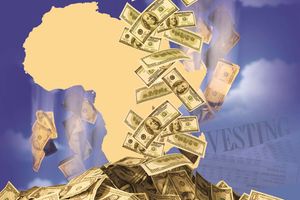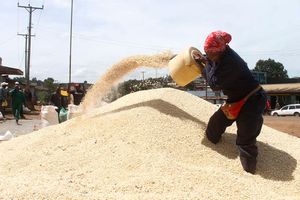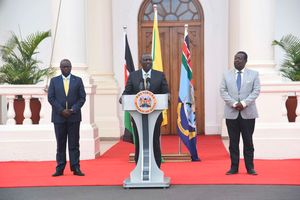
Teachers Service Commission CEO Nancy Macharia.
Workers in the education and training sector have defied a national stagnation in incomes and spending over the last year to post the sharpest improvement in both, a new consumer survey shows.
While a vast majority of Kenyans saw either a drop or stagnation of their incomes over the one-year period to March 2025, nearly half of teachers and trainers recorded an increment, according to results from ICEA Lion’s first quarter Consumer Spending Index.

ICEA Lion Asset Management CEO Einstein Kihanda at the launch of the ILAM consumer spending index report in Nairobi.
“Education/training sector workers experienced the most positive income trend, with nearly half (46 percent) reporting increased income and only 14 percent facing a decrease,” notes the report, highlighting the impact of the recent promotions and new hiring by the State.
Nationally, just 31 percent of Kenyans saw an income increment over the period, while earnings reduced for another 31 percent, and stagnated for 38 percent, the majority, contrasting sharply with the case for education workers.
With the rise in income, teachers have also posted the sharpest increment in spending over the same period, with 83 percent of them recording a rise, compared to a national average of 79 percent.
“The highest increase was noted among workers in the education/training sector, where 83 percent of respondents recorded an increase in spending,” notes the report published Tuesday.

Education Cabinet Secretary Julius Ogamba addressing Principals during the Kenya National Schools Principals Forum in Mombasa on April 23, 2025.
Unlike teachers, workers in the hotel, tourism, and leisure have had a tough year. According to the survey, 40 percent of them saw a drop in income and 33 percent have since cut their spending.
Wholesale and retail workers have equally witnessed a difficult economic environment over the period, with 45 percent seeing a drop in their income. However, despite the drop, only 18 percent cut their spending.
The insurer polled 1,186 Kenyans living in major economic hubs like Nairobi, Mombasa, Eldoret, Nakuru, Nyeri, and Kisumu; and 211 retail businesses during the quarter to March 2025.
The income and spending rise for teachers comes after the Teachers Service Commission – which is the largest public employer in Kenya – promoted over 25,000 teachers in the current financial year.
Last year, the education sector employer also hired permanently over 39,000 junior secondary school (JSS) teachers who had been serving as interns, effectively increasing their pay.
It also hired an additional 20,000 contracted teachers for JSS, further boosting the income and consequently spending by workers in the sector.







